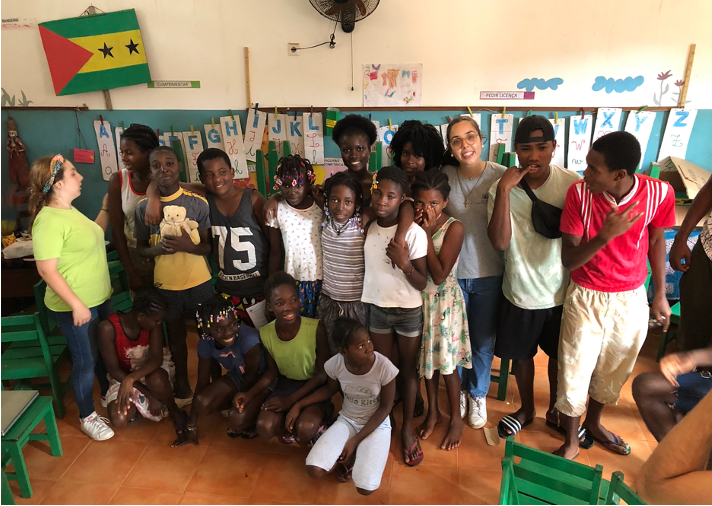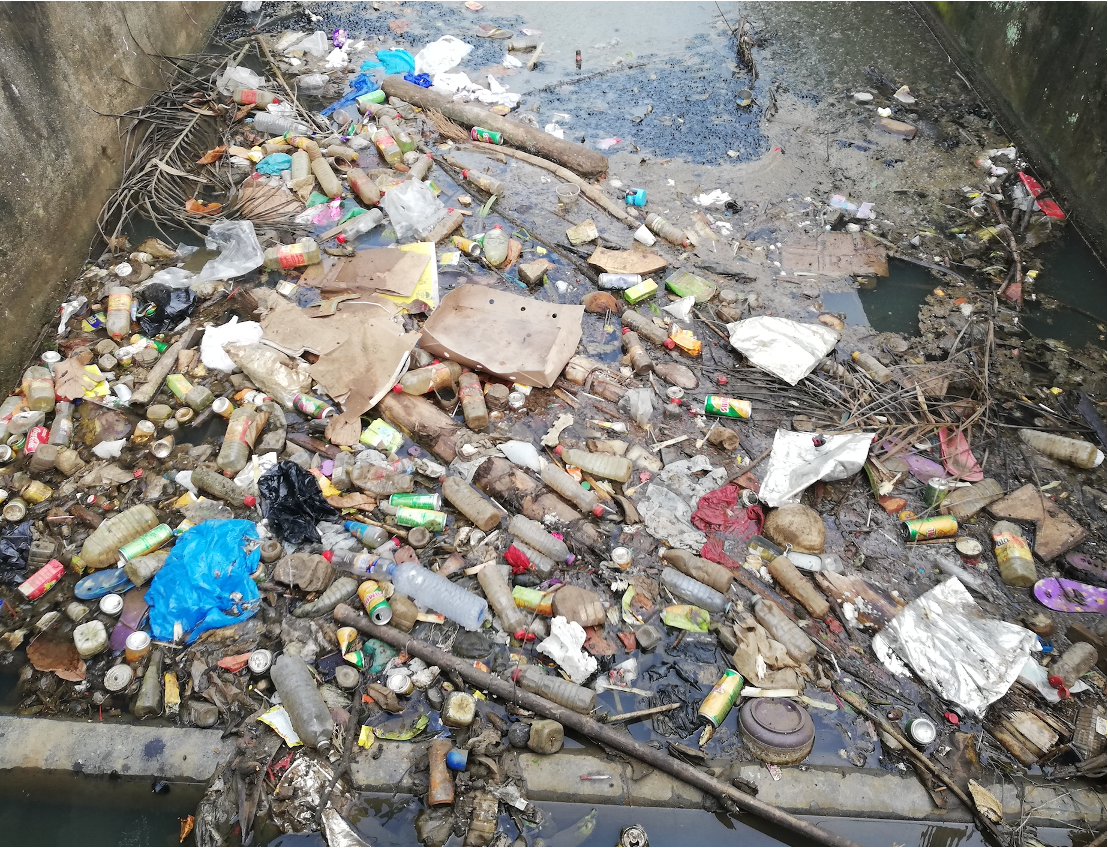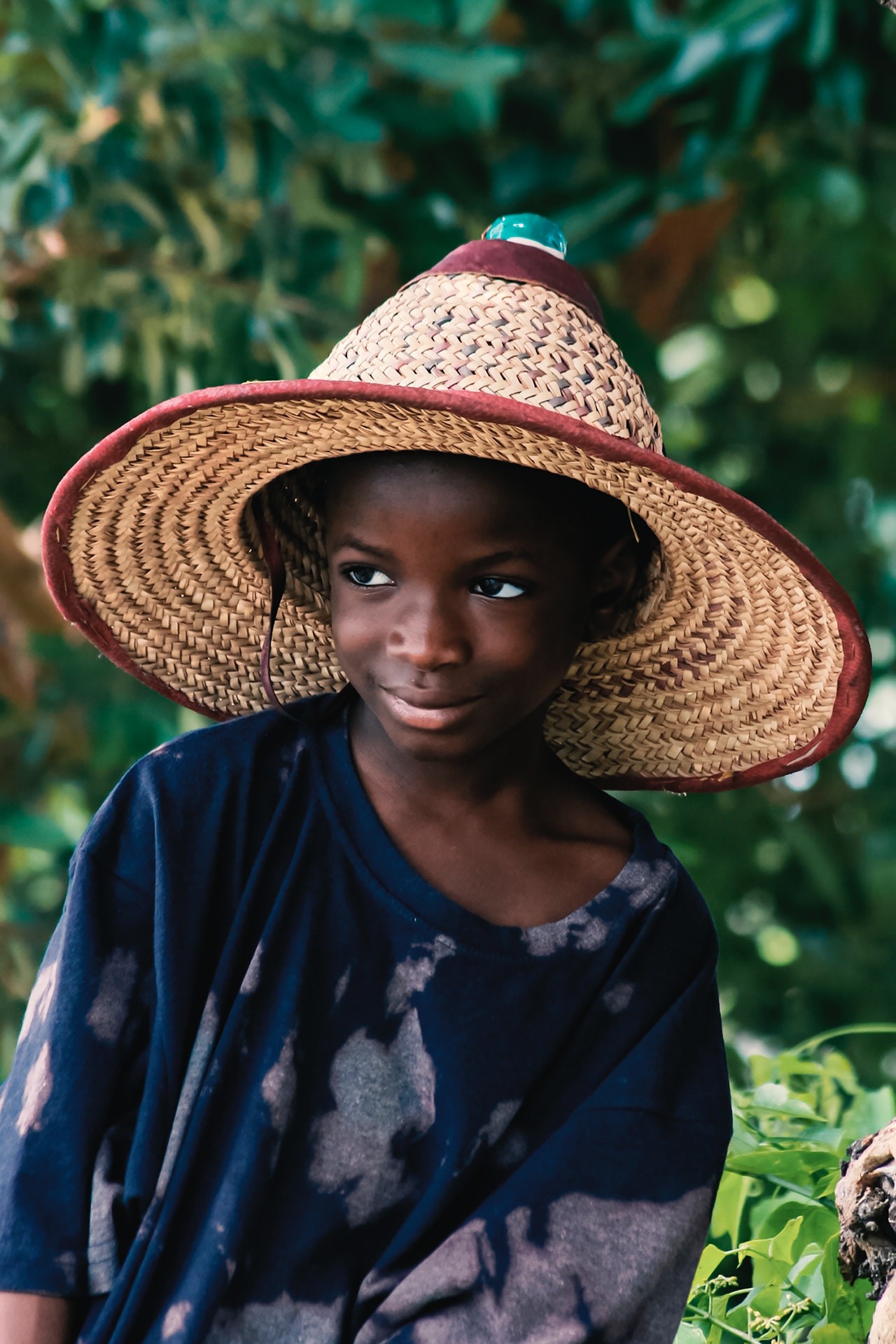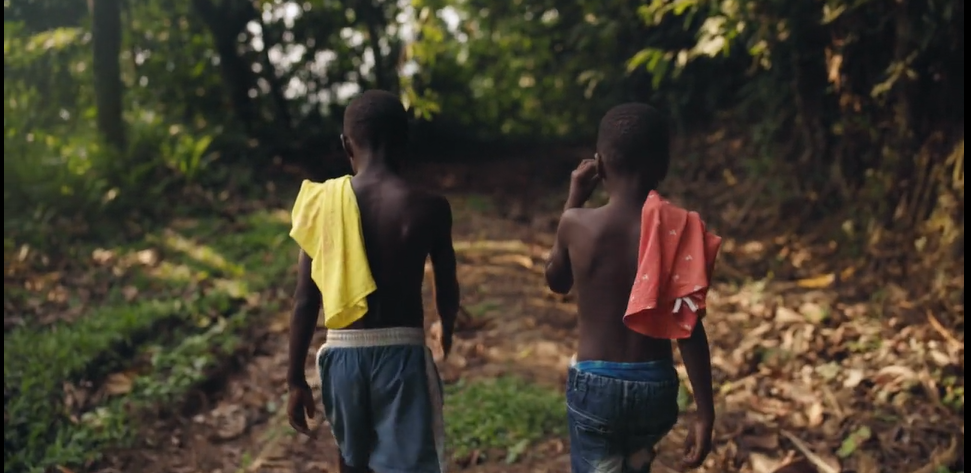- With Mariana Dores
"I feel a call to leave, to fly further, as it is God who calls me. I apply for Him and to Him, trying to respond to one of the many challenges that the Holy Father poses us ("I don't want a quiet church. I want a missionary church”. I am aware that my YES “is a drop in the ocean, but without it, the ocean would be smaller".

That's how she managed to convince her father that it was a wise decision to let her go to São Tomé and Príncipe.
It was through her catechist that she first became aware she wanted to help others. The catechist had brought a text by Josemaría Escrivá de Balaguer and Mariana felt the call to notice the other person, like a person who goes to the bakery and smiles at someone, instead of ignoring him".
These texts made Mariana Dores reflect on her life and on her relationships with others and on what she could still do.
She then enrolled in the Youth Without Borders of Castro Verde, her birthplace, the rule being that only after two years they could enrol as missionaries. Volunteering started in the country. In the first week, she went to Viana do Castelo, aged 15. There she became sure of the divine call, because she lived with a group of people who had all done international volunteering and realized that was her path. The first contact began in a home, where she gave meals, took care of and accompanied the elderly. In parallel, they created a kind of children´s day group where the children remained in the same space until they went home.
Since then, she began to believe that helping and sharing experiences as a simple gesture like going to Mass with her groups was a commitment to herself and to others. She started to do these volunteer activities around the country, always for 15 days. In her last experience as a volunteer, she realized that there was something she needed to do further and that just the country would no longer be enough for her. "I realized that God was calling me to something different, what I was doing was no longer enough for me".
International volunteering was a topic that she had cherished for a long time, and now the time had come. Mariana thinks it wasn't by chance that "the way was there", she understood that she "received several signs" that confirmed her conviction that something was about to change.
In 2018, on 8 September, which she recalls with maximum precision, she sent a letter to the Sol Sem Fronteiras Organization, volunteering for an international experience, and in November she was informed that she would go to São Tomé and Príncipe, a destination that had not been part of the itinerary of this Organization in the previous 20 years.
"It's a great clash of realities, because it has incredible beauty and harmony with nature, but it is profoundly poor". This is how she described her struggle with the "light, light" spirit of São Tomé. She stresses that it is the place where those with pure humanitarian intentions, will "drink from the source of the values that pass".
When they arrived in São Tomé, the local reality showed part of what the group would experience locally. Staying at a school, only occasionally there was water through a faucet that provided small portions of the precious water that was being stored for bathing. The most viable alternative was bathing in the river. There were also no bathrooms or electricity, so the light would be daylight and natural resources, with a little help from some wipes taken from Portugal. The wooden houses in the villages have just two rooms, the kitchen and a living room where everyone sleeps together on the floor, almost always without mattresses.
She stayed a whole month in São Tomé, specifically in Ribeira Afonso, close to the island's capital and the famous seven waves beach. Despite being a medical student and the fact that the health area was very much in need there, Mariana did not feel she had solid academic training to take on the role of a doctor. She took on teaching. In her involvement with the people of São Tomé, she rose awareness about sex education and some concepts about family planning. She also felt a serious concern about the environment, which she quickly realized was less intuitive to explain.

The extreme poverty and lack of basic sanitation in the poorest neighbourhoods make humans and pigs coexist harmoniously. Garbage in the open air is thrown without worries, later accumulating in dumps next to the main city and whose danger of methane gas is great and threatening. "Jojó" is the name they give to the garbage can, which still seems to be not very applicable. "In the village where we were, the garbage was deposited in the sea, because there was no follow-up on what was deposited in the bins. Accordingly, they preferred to throw it directly into the sea".
The greatest impact that São Tomé had on her was to witness the contempt of the younger ones for the older ones, the latter often weak, abandoned by their children and forgotten in their own homes. Mariana describes what she found in the Misericórdia house of "Ribeira Afonso, who had a day care centre that housed older people and gave them meals". She also recalls the medical post where few arrive by themselves and where there is not a doctor, only a nurse”.
Not everything is negative. This year 5 student of the IMDM emphasizes the awareness of the pressing problems, the scarcity of financial resources and sanitation, the lack of access to imported products, but proportionally there was the advantage of getting so much food from the land. "Many people only have one meal a day, they call it the "killer". Young children have another big problem, they don't have a place to stay, which means wandering the streets for days without the surveillance of an adult, playing amongst themselves. This is why so many appear to chase tourists and ask for sweets, because they are hungry and think that sugar will satisfy their hunger".
One of her goals was to raise awareness about the reduction of sugar intake and more care with their own hygiene, such as brushing their teeth. Still, reality showed her arguments other than sanitation, or food reasonableness. "Anyone who has a wound tries to glue it and does not go to the medical centre, or wraps a piece of cloth around the cut or a capoana (typical African cloth full of colours)".
To combat this whole process of successive negative actions, which for the populations is a routine for survival, Mariana and her volunteer group were passing on simple and effective messages, such as the need to brush their teeth, or wash a wound before wrapping it with cloth, or explain that they cannot drink palm wine, which they believe is not an alcoholic drink, but it is.
She recalls that one of the first experiences in the place was an activity that was arranged for 2 pm. After waiting for two hours, she thought that no one would show up.
She was wrong. They had just gone for a walk before, or were distracted by other activities, but they all appeared, smiling, without pressure, light and not responsible for routines.
In the balance of what she learned in contact with another world, she says that they were just a drop in such a vast ocean. She always knew that the solution was not to offer material, but much more give them the legacy of knowledge, so that this very knowledge can become the new oracle of the future, thus making knowledge last. "But to change habits, it would be necessary to have a structure and an investment that would teach them to work, because it's something they do little, maintaining, nevertheless, the happiness and lightness" that makes them known as the "light, light" island.
With a raw nature, the pollution they have is much more a global consequence of the rich countries than of their own. São Tomé is also the warehouse for outdated clothes that no one else wears. They are sent to them without any idea that they are not suited to the climate or the type of life they lead. Another problem that persists and that revolted Mariana is realizing that there are intermediaries between international cooperation and the neediest population and that they end up making illicit sales of goods that should be delivered as part of a solidarity donation.
While travelling through the memories of her first international milestone, Mariana recalled the behaviour of a teenager who, during the entire month that the Portuguese group was on a mission, never spoke to them about his home or family routines. Only on the last day and happy to know that he would also leave São Tomé to come to Lisbon to study, he showed Mariana his house. A very poor house, which came to mirror everything Mariana had already expected and experienced.
Of the moments that stuck in her memory the most, she recalls the various children who spent their entire days in the street playing, without any contact with school. She learned that each boy would have an associated cost of €4 per year in order to attend school. As many didn't even have that to pay, they simply didn't go to school. The group of volunteers explained to Mariana that she could not help and give money to the families, as this would set a precedent that would not be viable afterwards to help everyone around. What Mariana didn't want to say was that she actually paid for some students to go school to get the kids off the street. She did not want to stand to leave that place without making a difference.

When she finishes the final exam for year 6 of the IMDM, Mariana intends to do another volunteer work and spend Christmas somewhere in the world. She also wants to join a humanitarian group such as the Doctors without Borders during her internship. As for the missions and their humanitarianism, they will continue beyond or on these same borders. Because the voice that tells her to be more complete and that has inspired her so many times to reflect and then act, is the same voice that still inhabits her today, inspired by Josemaría Escrivá de Balaguer, the priest and founder of Opus Dei, in his work “The Way”.
“May your life not be a sterile life. Be helpful. Leave a trail. Illuminate, with the splendour of your faith and your love".

Joana Sousa
Editorial Team


